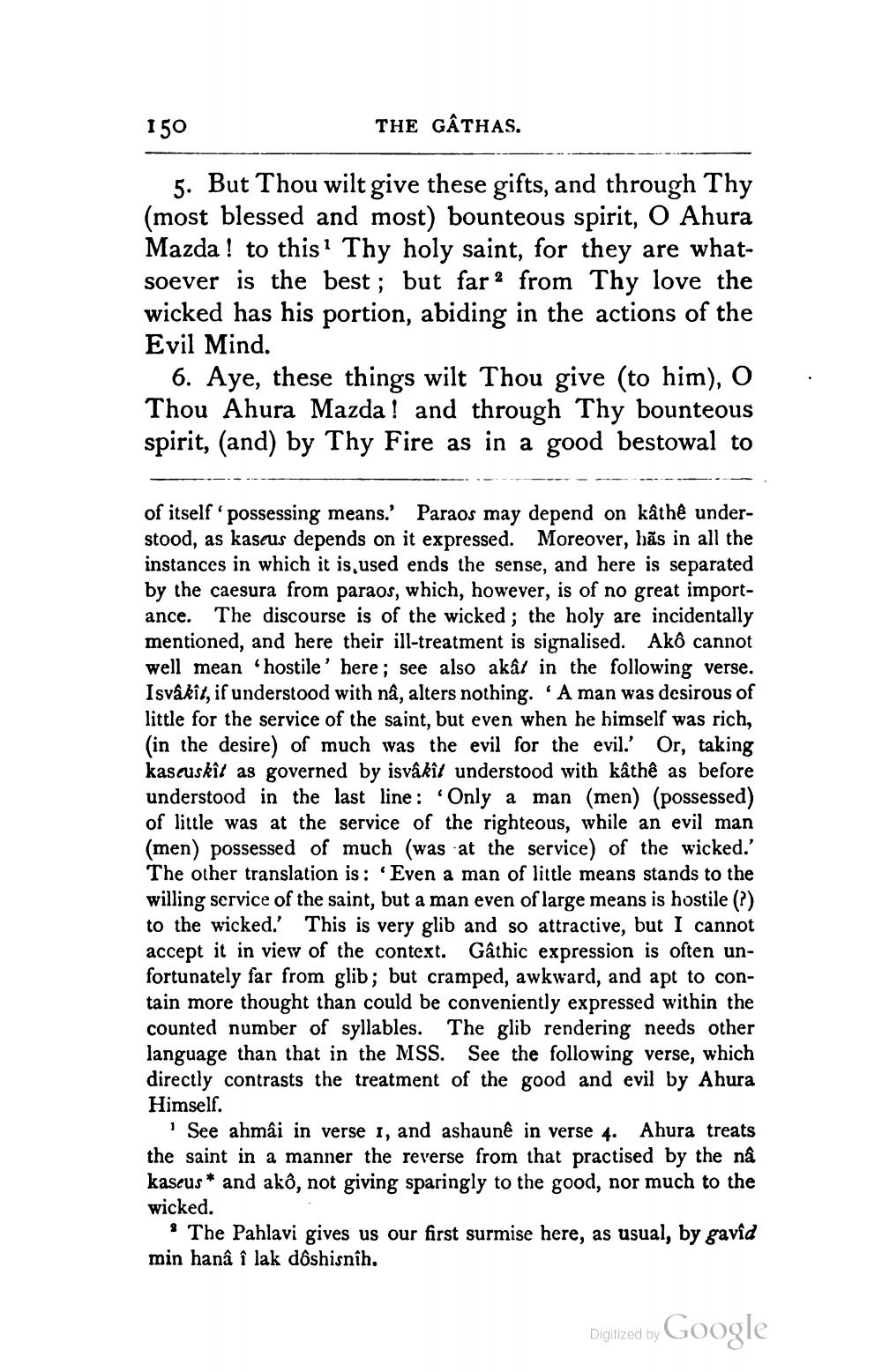________________
150
THE GÂTHAS.
5. But Thou wilt give these gifts, and through Thy (most blessed and most) bounteous spirit, О Ahura Mazda ! to this? Thy holy saint, for they are whatsoever is the best ; but fara from Thy love the wicked has his portion, abiding in the actions of the Evil Mind.
6. Aye, these things wilt Thou give (to him), O Thou Ahura Mazda! and through Thy bounteous spirit, (and) by Thy Fire as in a good bestowal to
of itself possessing means.' Paraos may depend on kâthe understood, as kaseus depends on it expressed. Moreover, hãs in all the instances in which it is used ends the sense, and here is separated by the caesura from paraos, which, however, is of no great importance. The discourse is of the wicked; the holy are incidentally mentioned, and here their ill-treatment is signalised. Akô cannot well mean "hostile' here; see also akât in the following verse. I svakit, if understood with nâ, alters nothing. 'A man was desirous of little for the service of the saint, but even when he himself was rich, (in the desire) of much was the evil for the evil.' Or, taking kascuskit as governed by isvakît understood with kathê as before understood in the last line : Only a man (men) (possessed) of little was at the service of the righteous, while an evil man (men) possessed of much (was at the service) of the wicked.'
The other translation is: 'Even a man of little means stands to the willing service of the saint, but a man even of large means is hostile (?) to the wicked.' This is very glib and so attractive, but I cannot accept it in view of the context. Gathic expression is often unfortunately far from glib; but cramped, awkward, and apt to contain more thought than could be conveniently expressed within the counted number of syllables. The glib rendering needs other language than that in the MSS. See the following verse, which directly contrasts the treatment of the good and evil by Ahura Himself.
See ahmâi in verse 1, and ashaune in verse 4. Ahura treats the saint in a manner the reverse from that practised by the nâ kaseus* and akô, not giving sparingly to the good, nor much to the wicked.
The Pahlavi gives us our first surmise here, as usual, by gavid min hanâ i lak dôshisnih.
Digitized by
Digitized by Google




